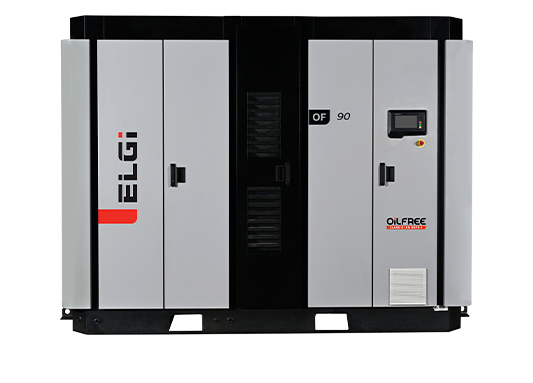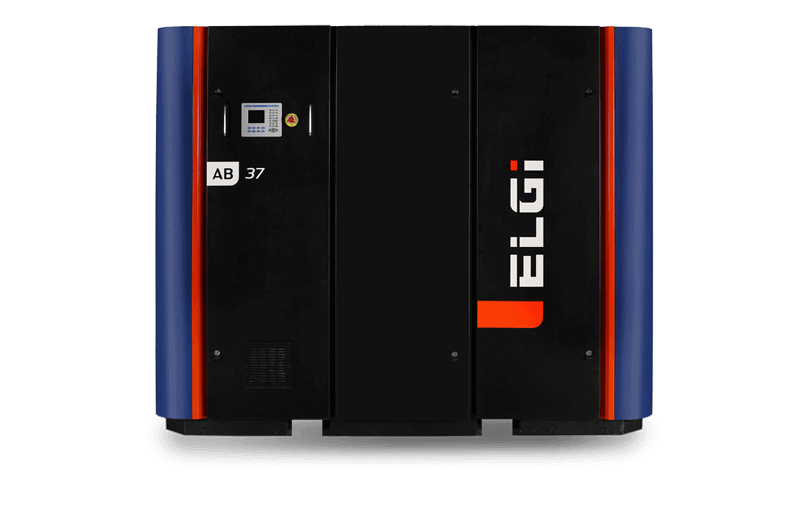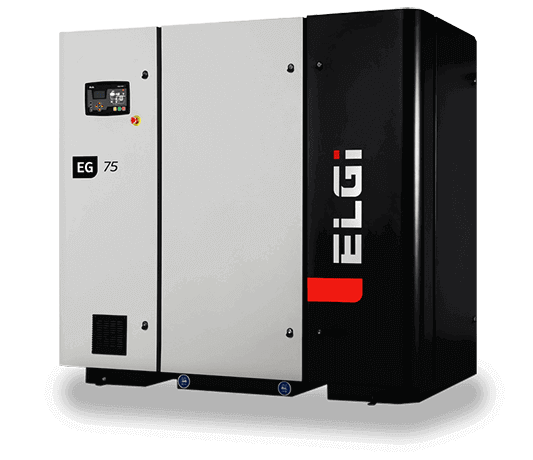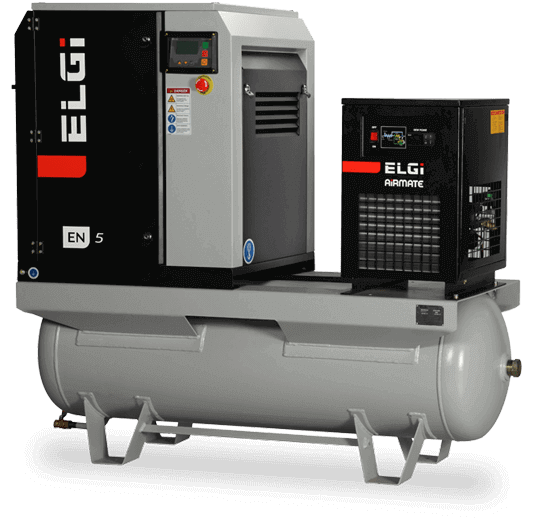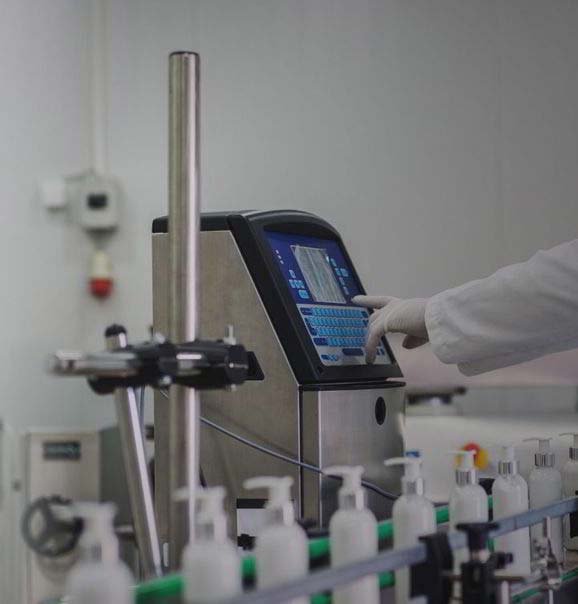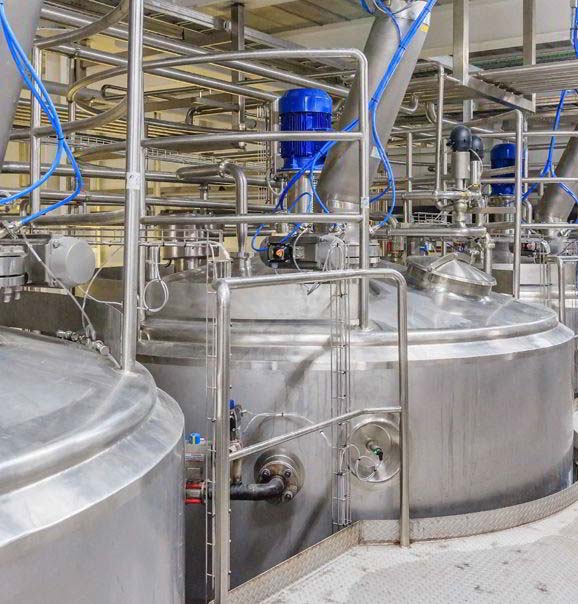The United States boasts one of the world's largest chemical industries, playing a pivotal role in the nation's economy by supplying crucial products supporting diverse sectors and daily life. This industry spans a broad spectrum, including basic and specialty chemicals, agricultural products, pharmaceuticals, and petrochemicals.
COMPRESSED AIR APPLICATIONS IN THE CHEMICAL INDUSTRY
Air compressors are essential for various applications in the chemical industry. Air compressors’ versatility and ability to provide a clean and reliable source of power make them an important part of the chemical manufacturing process. Common air compressor applications in the chemical industry include:
Instrumentation and Control Systems
Compressed air is used to power pneumatic control valves, actuators, and instrumentation devices that are crucial for regulating and controlling various chemical processes.
Pneumatic Conveying
Compressed air is employed to transport powders, granules, and other bulk materials within the chemical plant. This is especially useful in situations where the materials need to be moved over long distances or through complex systems.
Spraying and Coating
Compressed air is utilized for atomizing liquids in spray painting, coating, and surface treatment applications. This is common in processes where a uniform and controlled application of chemicals onto surfaces is required.
Cleaning and Purging
Compressed air is used for cleaning equipment, removing debris, and purging systems of unwanted gases or contaminants. It's crucial for maintaining the cleanliness and efficiency of various chemical processing equipment.
Nitrogen Generation
Compressed air is often used as a feedstock for nitrogen generators. Nitrogen is essential in various chemical processes, and using compressed air as a source allows for on-site production, eliminating the need for nitrogen cylinders.
Aeration and Agitation
Compressed air is used to aerate and agitate liquids in chemical reactors and treatment tanks. This is essential for maintaining the homogeneity of chemical mixtures and facilitating reactions.
Packaging
Compressed air is employed in packaging processes, including the operation of pneumatic tools for sealing, labeling, and packaging. Compressed air is also used for conveying and handling packaging materials.
Safety Systems
Compressed air is utilized in safety systems, such as emergency shutdown valves and pneumatic safety interlocks. These systems help ensure the safety of the chemical processes and personnel.
Laboratory Applications
Compressed air is used in various laboratory applications, including sample analysis, filtration, and other research processes.
Drying Processes
Compressed air is employed in drying applications where moisture removal is critical. This can include drying equipment, raw materials, or finished products.
THE IMPORTANCE OF COMPRESSED AIR QUALITY THE CHEMICAL INDUSTRY
Clean, dry compressed air is critical in chemical manufacturing, serving various functions like material conveyance, process control, and safety assurance. Meeting specific air quality standards presents a significant challenge for the chemical sector.
Compressed air finds application in critical processes such as mixing, conveying, and packaging within the chemical industry. The quality of compressed air holds paramount importance, directly impacting product quality and manufacturing process efficiency. Precise conditions are often required for chemical processes, and contaminated compressed air introduces impurities, jeopardizing product quality, purity, and consistency. Clean compressed air safeguards product integrity.
As compressed air exits the compressor, it carries traces of impurities such as dust particles, moisture, and oil.
Dust Particles: The compressed air may contain dust particles from sources like rust in compressed air piping, peeling internal coatings, welding spatter, and air-oil separator filter media. Proper construction, material choices, compressor maintenance, piping material, and tank coating influence the quantity of dust in compressed air.
Moisture: As compressed air cools down, moisture undergoes a phase change, transforming into liquid water. While most water condensate is removed by moisture separation filters, traces may persist. Factors affecting moisture levels include air humidity, condensate removal efficiency, and compressor operational temperature.
Oil: Oil-lubricated air compressors, common in the market, introduce traces of oil into compressed air. Factors influencing oil quantity include air-oil separation system efficiency, operational conditions, compressor duty cycle, valve functionality, and exit velocity.
Contaminated compressed air can lead to equipment clogging, reduced efficiency, increased downtime, negatively impacting production efficiency, operational costs, and chemical production quality.
Dirt particles, moisture, and oil can lead to unwanted abrasive sludge, corrosion of piping, and damage to pneumatic tools.
Classifying Compressed Air Based on Application: The air quality required depends on the specific application, categorizing compressed air into contact or non-contact applications. In contact applications, compressed air directly interacts with final products, while non-contact applications involve pneumatic systems affecting end products.
International Standards for Air Quality: The International Standards Organization (ISO) is a key player in developing global standards. ISO 1508573:2010 is the prevalent standard specifying compressed air quality in the industry. Part one of the standard outlines purity classes for particles, water, and oil, independent of the measurement location.
Easy-to-use chart that combines all three contaminants.
In an industry reliant on precision and stringent standards, ensuring compressed air purity transcends mere compliance; it is a fundamental necessity. Clean compressed air significantly influences product quality, manufacturing efficiency, and operational reliability. Adherence to international standards, especially ISO 1508573:2010, underscores the industry's commitment to maintaining air quality. The chemical industry acknowledges that each breath of clean air contributes to delivering products shaping lives and industries, highlighting the pivotal role of clean air in achieving success.
If you need assistance in identifying the air quality required for your facility, reach out to our compressed air experts!
Get Expert Guidance and Personalized Solutions
WHY CHOOSE ELGI AIR COMPRESSORS FOR CHEMICAL MANUFACTURING?
ELGi has partnered with many leading chemical manufacturers across the globe to provide efficient and reliable compressed air for their chemical manufacturing process. The ELGi air compressors were chosen for multiple reasons including:
Highly Efficient and Reliable Air End
ELGi’s designs and manufactures its own air ends at its state-of-the-art foundry. ELGi’s unique air ends are designed with in-house developed eta-v profile rotors, with a 4/5 lobe combination. The ELGi air compressors’ air ends run at lower speeds offering high energy efficiency and reliability.
Best-In-Class Warranty
ELGi is proud to offer industry-leading warranty for all leading compressor models.
- EG Series Lubricated Rotary Screw Compressors: life time air end warranty, five-year compressor package
- EN Series Lubricated Rotary Screw Compressors: 6-year air end warranty, five -year compressor package warranty
- OF Series Oil-Free Rotary Screw Compressors: 4-year air end warranty, 1-year compressor package warranty
- AB Series Oil-Free Rotary Screw Compressors: 5-year air end warranty, 1-year compressor package warranty
Low Ownership Cost
ELGi's energy-efficient products and low parts and service cost benefit your overall bottom line. With higher efficiency and minimized downtime, ELGi air compressors provide you with the lowest cost of ownership.
Ease of Maintenance
ELGi’s air compressors are designed with customers in mind. ELGi air compressors are designed so that you can easily access all service components. ELGi air compressors come with an easy-to-use full function controller that provided at-a-glance compressor status.
Quality Assurance
To ensure that each compressor fulfills high requirements, ELGi employs stringent quality control techniques. This dedication to quality ensures that customers receive reliable and consistent service. ELGi is one of 2 air compressor manufacturers to have won the Deming Prize for Total Quality Management.
CHEMICAL INDUSTRY
INTERESTED IN OUR
SERVICES & PARTS?
From service plans, service networks to Genuine ELGi parts, explore our vast range of services and parts to find exactly what you need.
PLACE A REQUEST


